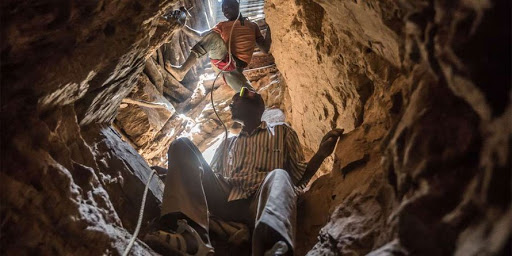
Niger’s military government has announced the nationalisation of the country’s only industrial gold mine, accusing its Australian operator of “serious breaches” as the junta intensifies efforts to gain control over the nation’s natural resources.
- Niger’s military government has nationalized the SML gold mine citing strategic interests and resource control.
- The government accuses the Australian operator of breaches including failure to meet investment commitments.
- Similar state intervention efforts have occurred in countries like Mali, Guinea, and Burkina Faso to secure greater local benefits from mining operations.
Military leader, General Abdourahamane Tiani, who took power after a military coup ousted former President Mohamed Bazoum in an overnight operation, announced the move on state television on Friday.
The junta said the mine has entered an “alarming economic situation.”
An official order from General Tiani said: “In view of serious breaches and with a view to saving this highly strategic company, the state of Niger has taken the decision to nationalise SML.”
The statement added, “This measure is in line with the vision of the president of the republic, which is to promote the full appropriation of its natural resources by the Nigerien people.”
The junta criticised McKinel for failing to deliver on a $10 million investment plan, which it said resulted in tax and wage arrears, layoffs, rising debt, and halted production.
According to a report by the Extractive Industries Transparency Initiative, SML’s industrial gold production stood at 177 kilograms in 2023, while artisanal production across Niger reached 2.2 tonnes.

Security challenges complicate operations in Niger’s mines
In May, a bomb explosion in Niger’s Tillaberi region, a hotspot for jihadist activity, claimed the lives of at least eight workers at the SML mine.
This incident prompted the Nigerien army to deploy over 2,000 soldiers to combat insurgent groups in the area, which remains a focal point of the country’s security crisis. Consequently, the government decided to take control of the gold mine.
This move is part of a broader trend in West Africa, where military juntas have adopted an interventionist approach, reviewing and renegotiating mining contracts to increase state participation and control. Notably, Niger nationalized the local branch of French uranium producer Orano in June,
In Mali, following the 2020 coup that ousted President Ibrahim Boubacar Keïta, the military government pressured Canadian mining company IAMGOLD and other foreign operators to increase local ownership and improve investment commitments.
It also reviewed contracts with companies like Hummingbird Resources and Randgold Resources to renegotiate terms more favourable to the state.
Similarly, Guinea’s junta pressured companies like Société Minière de Boké (SMB) and others to increase local ownership and ensure more direct benefits from bauxite exports.
In 2022 and 2023, Burkina Faso’s juntas took similar steps after their coups, pushing companies like Endeavour Mining, which operates some of Burkina Faso’s largest gold mines, to increase investments and improve contributions to the local economy.
However, unlike Niger, which has moved towards outright nationalisation in some cases, Burkina Faso, Mali, and Guinea have focused more on contract revisions and stronger oversight rather than formal seizure of assets.
Olamilekan Okebiorun












